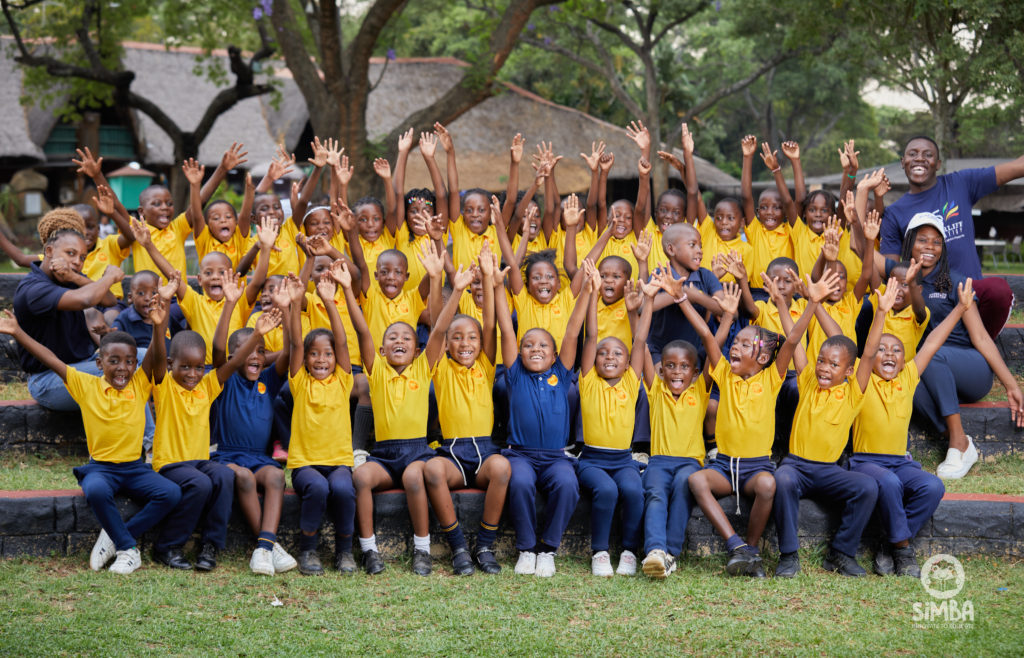
Domboshava was originally known for the granite hills and spectacular formations surrounding it. Now, it is also known as an area with cheaper land, and a cheaper life but close enough to the capital Harare, that you can commute to work. As the population has grown, the infrastructure for what was once an informal town has barely kept up. This is a situation many rural towns and cities face globally. One glaring shortage is in elementary education. Rural schools often always struggle to attract teachers, resources, and technology. The cost for education is that urban students tend to achieve better results and are more likely to complete school than their rural counterparts.
Higherlife Foundation has been investigating new models for improving the quality of early childhood education in rural communities. On January 7 2020, the Foundation opened Simba Education, an elementary school, in Domboshava, meant to serve the community as an institution of first instance, where learners are given the core skills readying them for a learning environment of the 21st century.
A timely respite for new families in the community
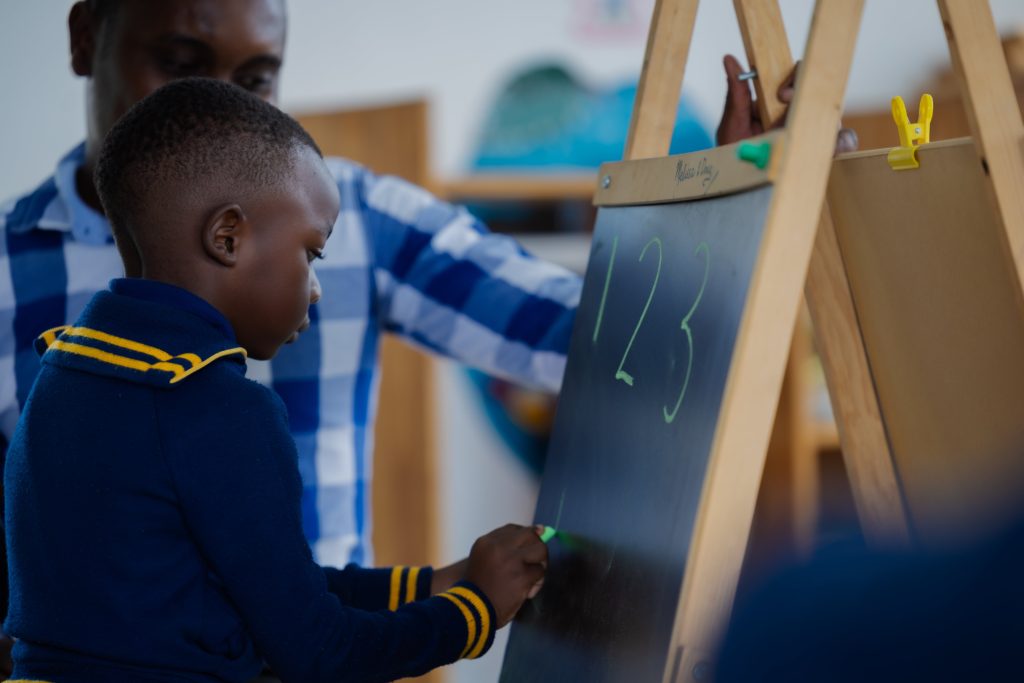
For parents who had their children in elite schools in Harare and needed a closer institution of similar standard, Simba came at the right time. Kudzanayi Chingono, transferred his six-year-old son from a Harare private school to Simba Education. He was reluctant about sending him to a rural school, as he had a perception that they are quality of tuition would be low. After visiting the campus, he changed his mind and opted to enrol his son. The decision saved his son 60 kilometers of commuting to school daily.
“My son’s behaviour has improved since he joined the Early Childhood Development B class at Simba Education. In terms of their learning methods, I believe there is more engagement, and he has been more interested in school since he made the transition,” said Mr Chingono. Mr Chingono enrolled his other son with the school.
Violet Makusha, whose child transferred from a school in Chitungwiza, “I heard about Simba from a friend who recommended the school. My child was struggling with her pre-writing, and now she has improved,” she said.
In Zimbabwe, primary school runs for nine years, with two years dedicated to elementary development and seven years which cover the core primary education curriculum. Mrs Doreen Tom, whose daughter is in Grade Two at Simba Education, said she believes moving their daughter close to home has turned out for the best, despite her early doubts.
“When my child came, she was not confident even the teachers observed it. I have seen lots of improvements. My daughter does not want to miss school, a change from the time she used to learn elsewhere. Even among other children, you can see distinctly that she learns at Simba Education from how she carries herself,” said Mrs Tom.
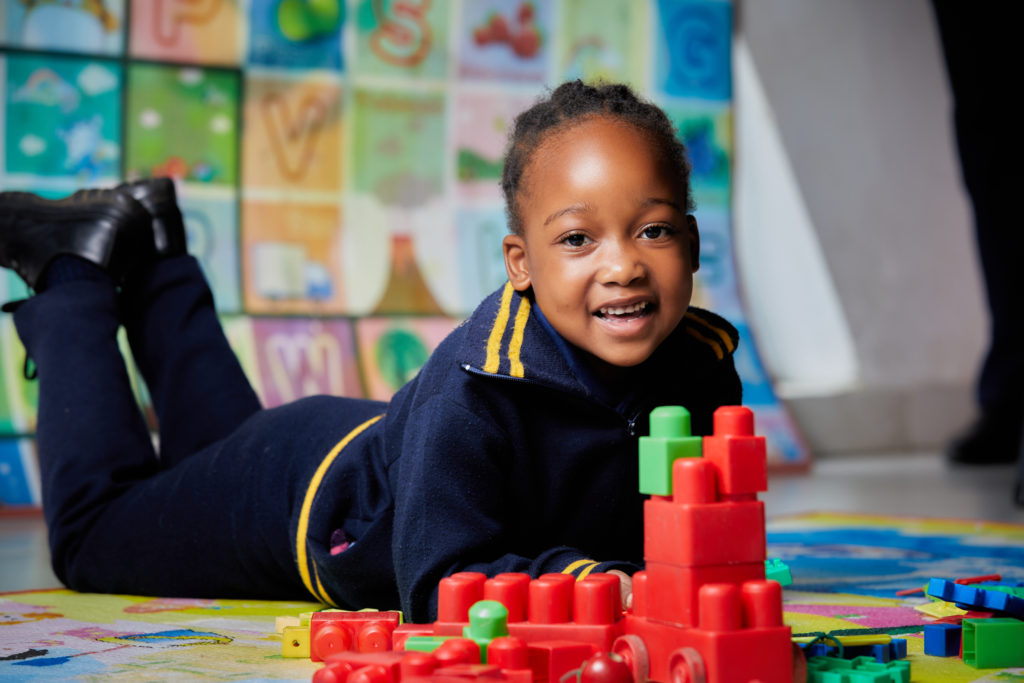
Besides the infrastructure, which positions Simba Education among the best-built elementary schools in Zimbabwe, there is a culture of interactive learning which underpins all teaching at the institution. School administrator, Tinashe Musharu, said that since opening their doors in 2020, 145 students have passed through the institution, and 97 are currently enrolled.
“We teach students how to learn. For example, if we talk about colours, we do not want them to cram what they are called. We want them to know and understand these colours. The same with shapes; we have toys and physical learning materials that they interact with, we do not simply draw shapes on the board,” said Mr Musharu.
This approach is made easier by the school’s low student-to-teacher ratio, which ranges between 15 and 20 students per class. Simba Education has a well-equipped computer lab with computers and tablets, which anchors their tech-driven curriculum. There is a platform called the Simba Platform where teachers plan and access their lessons through tablets. This platform is used to track students’ performance and allows for individualised teaching plans where a lack is identified.
Teachers at the school also use animated programs to teach songs and rhymes, extend our students’ vocabulary, and to reinforce key concepts. Simba Education’s connection with students extends beyond just the classroom, and there is due attention given to the student’s well-being.
“We assist students who get sick. When a child gets sick, we find our ways to ensure the child has received medical assistance,” said Mr Musharu.
During the needs assessment stage preceding the establishment of the school, it was found that there are children whose parents do not send them to preschool, because of a lack of funds. In response, the Higherlife Foundation chipped in to give scholarships to 15 students from Domboshava.
Mr Musharu explained that the approach being applied at Simba, which includes gardens which act as living laboratories and provide school feeding, as well as a participatory instruction method.
“We blend curricula; we use the Zimbabwean curriculum with borrowings from the United Kingdom curricula. As a result of the blend, we are raising learners who can succeed both in the local environment and are able to fit into any learning system globally,” he said.
Teacher training and own content development
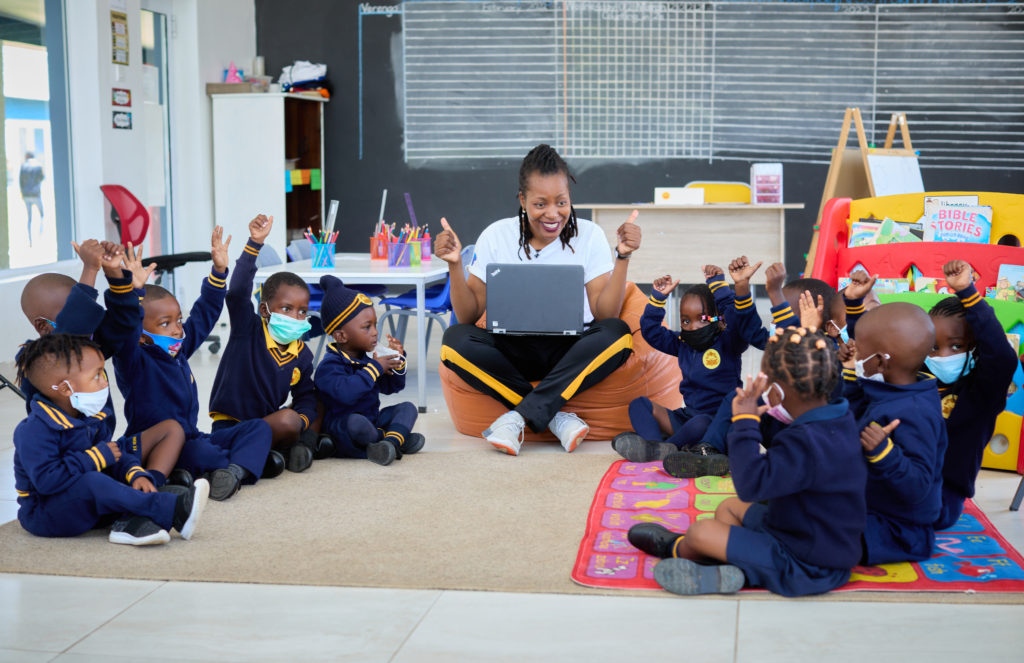
The school has also developed its own content, the Growing Trees Books, which teachers and students use. Even teachers who are part of the Simba Education family say they have grown professionally since they joined the institution. There is a deliberate approach by the institution to provide regular training to the teachers at the school, focusing on foundational literacy and numeracy. Explaining the utility of this investment, the Executive Head of Simba international Ms Lauren Ford, said if teachers are well-equipped, they can be conduits to lift the students in rural community out of poverty.
“This type of teacher training can help to bridge the inequality gap between urban and rural schools. Oftentimes, rural communities lack the educational resources and support compared to their urban counterparts. By training teachers in these foundational literacy and numeracy skills, they can provide their students with the same level of education that urban students have access to,” said Ms Ford.
Those who have worked at the institution since it started have attested to the school’s focus on personal development. Dedication Mureyi, who joined the school as an Assistant Teacher in 2020 and has progressed to be a Grade One class teacher, said he was impressed by the way the institution’s agility in responding to challenges.
“During Covid-19, classes could not be held physically, we made use of Zoom and WhatsApp to conduct classes. This was new to us, but we adapted quickly, and we were able to ensure that work continues even in the face of the pandemic,” said Mr Murenyi.
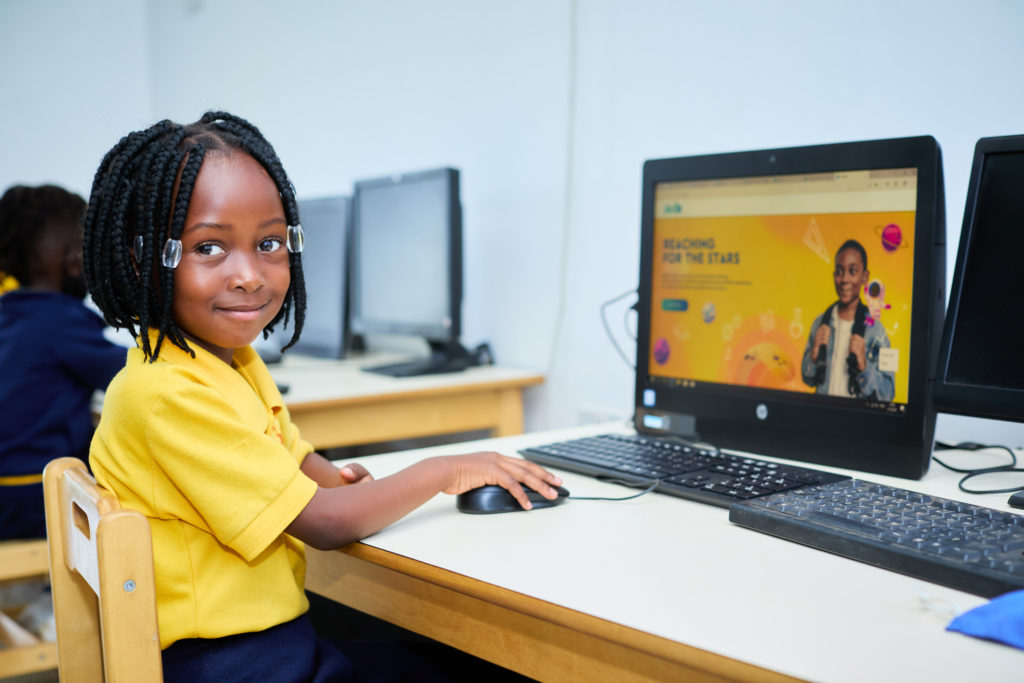
After Covid-19 subsided and normal lessons resumed, the school introduced intensive revision meant to ensure that content taught through online channels was well received and retained. ECD B Teacher Ms Zvikomborero Nhamo who has been with Simba since its inception as well said the experience has taught them how a school can be in the centre of helping a community develop.
“In the ECD we focus on the holistic development of children, we do not worry about academics, we also focus on their physical development. This is why we allow them to play, explore and be creative. We do sport as well, we take learning as an integrated approach,” said Ms Nhamo.
According to her, the teaching methods which are heavy on technology have pushed families with children at the school to adopt technology like smartphones and laptops to assist learning.
“Nutrition is a very important part of child development, in Domboshava we still have families that are struggling in terms of their socio-economic wellbeing since it is a peri-urban area. The food support helps improve learning outcomes because a hungry child is difficult to teach,” she said.
Simba Education’ standardised approach does not end with the food, the learners get similar toys and stationery. The Christian and family environment at Simba Education creates a bond between teachers, learners, and other staff members. It is a school which was started to plug a gap in a rural community but has over time become a source of hope and inspiration for young minds in Domboshava.
